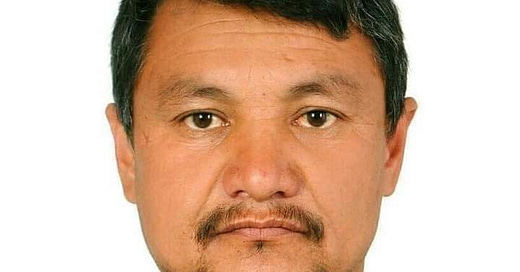Alijan Hassannejad, the statistical Director of Daykundi, Mysteriously Murdered
For many years, Hazaras have been killed in Afghanistan under various pretexts by the Taliban and other rebel groups, sometimes individually and sometimes collectively
Mohajir Times— Local sources in Daykundi province, Afghanistan, have reported to the media that Alijan Hassannejad, the Statistical director of Daykundi, was mysteriously murdered in his house. According to sources, the Taliban have claimed that Hassannejad’s death was a suicide, but Najiba, Hassannejad’s daughter, has refuted this claim.
According to local and media reports, Hassannejad’s neighbor discovered him hanging in his yard on Saturday, June 1, 2024. The Taliban, however, stated that Hassan Nejad’s death was a suicide. Najiba, Alijan Hassannejad’s daughter, has accused the Taliban of staging the scene, asserting that her father had no reason to commit suicide and was, in fact, murdered.
Sources, quoting Najiba Hassannejad, who is currently a student at Ahlul-Bayt University in Iran, have reported that in his recent phone calls, Hassannejad had expressed concerns about his safety at work and had planned to resign from his position. The sources also added that Hassannejad had been arrested and imprisoned twice by the Taliban and had recently intended to leave the country. However, due to his documents being held as collateral by the Taliban, he was unable to do so.
Alijan Hassannejad was from the Hazara tribe and the Shiite religion of Afghanistan. He was working in the Taliban administration as a local employee in the registration department of Daykundi province. For many years, Hazaras have been killed in Afghanistan under various pretexts by the Taliban and other rebel groups, sometimes individually and sometimes collectively.
Since the Taliban took power in Afghanistan, former government employees, even those who had pledged allegiance to the Taliban and were working under their regime, have been murdered or disappeared under various pretexts or mysteriously. The Taliban themselves often take the lead in these incidents, professionally staging the circumstances.





